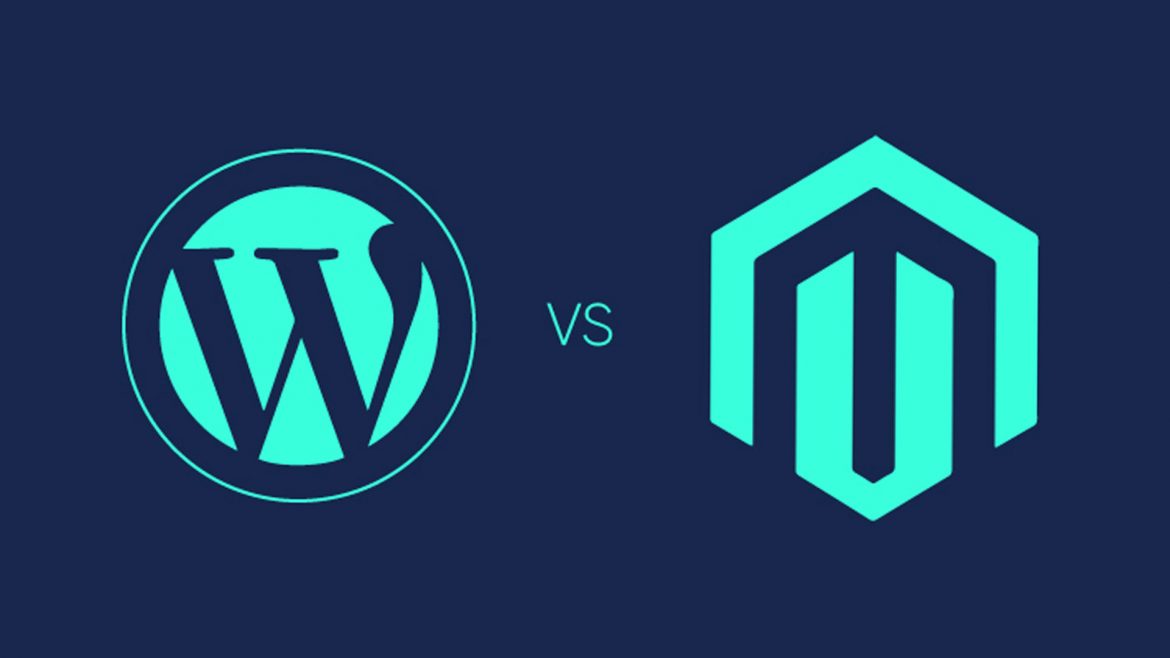This article is about the comparison of two popular platforms for eCommerce websites: WordPress and Magento. WordPress is more content-based and more open source, while Magento is mainly devoted to eCommerce. Both platforms have their advantages and disadvantages, but WordPress is recommended for beginners because of its simplicity. However, WordPress does not offer good flexibility and customization for advanced tasks. Both platforms offer good support through documentation and community forums. In addition, both WordPress and Magento have dedicated customer support teams. WordPress has multiple blogs and forums, which can be useful for learning new techniques. WordPress is easy to use, while Magento is more complicated.
WordPress is more content-based
WordPress and Magento are both open source eCommerce platforms that are very popular with leading brands across the world. Both have a number of features and good security, but the flexibility of Magento makes it a more attractive choice for eCommerce development. Wordpress is better for building blogs, while Magento is best for creating eCommerce websites. Both offer great flexibility and can be used to create a variety of websites.
Both platforms have many advantages and disadvantages, but WordPress has a slight
advantage when it comes to SEO. While both platforms support SEO features, WordPress is
more optimized for keyword-rich content and has a built-in blogging feature. A blog can be
an excellent way to build brand awareness and attract organic traffic.
While WordPress is easy to use and supports a range of plugins for different eCommerce
functions, Magento provides more advanced functionality and has more built-in features. It’s
best for professional eCommerce sites, which require more advanced functionality.
WordPress and Magento are the most popular website building platforms for eCommerce
development. WordPress has a plethora of extensions and themes, but it can be
cumbersome to manage these third-party extensions. Magento, on the other hand, offers a
full set of features and is the leading eCommerce platform in the market. With thousands of
active sites and a 23.4% market share, Magento is the better choice for eCommerce
development.
Magento is mostly devoted to eCommerce
Magento is a PHP-based open-source platform that is designed specifically for eCommerce websites. First introduced to the market in 2008, this platform is used by some of the world’s largest companies to manage their online storefronts. This platform is versatile, secure, and offers customizable themes. It also has a rich history and a wealth of resources for learning and development.
Magento is a very powerful eCommerce development platform and can be used to create
various types of online stores. The platform supports various types of products, including
physical and virtual products, bundled products, configurable products, base items with
options, and extensions. There are two types of Magento systems: community and
enterprise. Both versions of Magento have their advantages and disadvantages.
Magento comes with a huge community that is dedicated to providing solutions for its users.
The community offers numerous resources and is often willing to help newcomers overcome
any challenges that arise. Moreover, a large number of experienced and qualified developers
use Magento to build and maintain online stores.
Because of its large customization capacity, Magento allows developers to enhance the
software and extend its features. Developers have also created various packages known as
modules and released them on the Magento marketplace. However, if you’re not a
developer, you can still configure Magento without a developer’s assistance.

WordPress is more open source
There are two main platforms for eCommerce development: WordPress and Magento. The former offers limitless customization and allows for SEO-friendly content management. The latter requires coding skills and is more complex. Magento is the eCommerce platform of choice for merchants with an expanding business. However, WordPress is ideal for small businesses and content-driven websites with a limited number of products.
Both WordPress and Magento are open source and free for use. However, there are certain
limitations when using open source software. One disadvantage of open source platforms is
that they don’t include customer support. If you have questions about using the platform, you
must rely on online forums or self-help materials. WordPress has a large community and
more self-help resources than Magento.
WordPress offers an eCommerce plugin for selling products. WP Shopify is one of the most
popular open source WordPress ecommerce plugins. It allows syncing data from your
Shopify store to your WordPress site and provides a shopping cart experience.
BigCommerce also has its own eCommerce platform. While both plugins work well on
WordPress, they can’t produce an eCommerce website as professionally as Magento.
Choosing an open source platform for an eCommerce platform is important for both new and
experienced store owners. Open-source software is the preferred option for experienced
coders and large companies with strong technical teams, but it also benefits the less-
technical store owners as well.
Magento
If you’re looking to start an online store for a medium-to-large size business, Magento is the better option. The platform has a number of advanced features built in, and you can get started right away with a simple installation. For instance, Magento supports mobile commerce, multi-store management, and sales reporting tools. It’s also capable of offering features like shopping carts, product bundles, and catalog management. WordPress, on the other hand, requires plugins and extensions to add these features.
Both WordPress and Magento have advantages and disadvantages. WordPress is more
flexible than Magento, and it’s easy for newcomers to contribute. However, it’s important to
remember that WordPress requires a huge number of plugins, and one out-of-date plugin
can break your infrastructure. Magento, on the other hand, has built-in REST APIs to let you
easily integrate third-party applications.
Although WordPress is more flexible and user-friendly, Magento is far more advanced and
has many advanced features. For instance, a website built with Magento can use all major
payment gateways. It can also use advanced SEO features to help drive traffic to the site.
Moreover, a well-optimized site will get better organic search results. Magento also has a
large community of developers that can help you customize it to your liking.
If you are a beginner, WordPress is the better choice. However, it doesn’t have the flexibility
or customization that the more advanced Magento users need. WordPress offers good
documentation, but doesn’t have a dedicated customer support team. While both platforms
offer good support, the latter is generally better-known.
Magento vs WordPress
Both Magento and WordPress can be used for eCommerce development, but one platform has more features than the other. For example, WordPress comes with thousands of free and paid design themes. These themes can be customized to your brand’s needs. You can also purchase themes from the official marketplace. You can also find themes that are unique and custom-built from third-party sites.
While both platforms have numerous benefits, Magento is more suitable for eCommerce
development. It requires more knowledge, skills, and money to use than WordPress.
Additionally, WordPress’ eCommerce plugins do not offer as many features as Magento’s.
This can limit your ability to offer multiple shipping methods, payment gateways, and
languages. Moreover, Magento’s Admin Panel is dedicated to eCommerce capabilities,
unlike WordPress’.
WordPress is lighter and uses fewer resources than Magento. It offers better performance,
thanks to an inbuilt caching feature. However, its code quality isn’t nearly as high as
Magento’s. However, it’s worth noting that WordPress has made improvements in code
quality in recent versions. However, there are some downsides to both.
While WordPress does not have eCommerce functionality built-in, it is incredibly user-
friendly and has a great deal of flexibility. The WooCommerce plug-in, for instance, helps you
create an online store. You can also customize a theme and customize it with various
plugins. For example, you can sell digital downloads and add coupons to your site.


